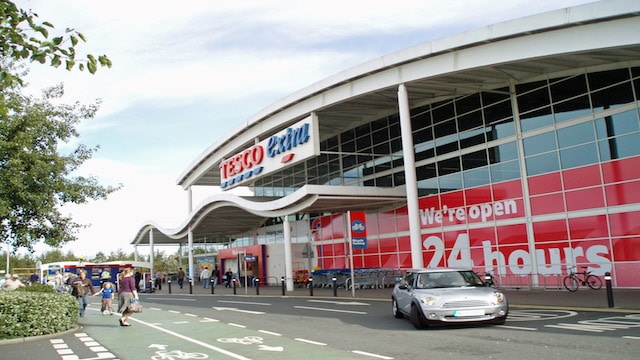After several years of investors seemingly talking of nothing else besides the accounting scandal, the rise of discounters and impending doom, Tesco (LSE: TSCO) has staged something of a quiet renaissance over the past year as the shares have rocketed over 30% in value. Now, this rally hasn’t been without reason, but with the shares now trading at a very pricey 27.8 times forecast 2017 earnings, is Tesco priced to plummet in 2017?
As mentioned, this rally hasn’t been conjured out of thin air as core UK like-for-like sales have increased several periods in a row. Furthermore, Thursday’s trading statement continued the run of good news by disclosing that Q3 saw the grocer increase its market share for the first time since 2011.
This certainly suggests that CEO Dave Lewis’s turnaround plan of cutting prices, simplifying the range of offered goods and sprucing up stores is paying off. But where does Tesco go from here? Well, management is currently guiding for at least £1.2bn in operating profits for 2016. This is a far cry from the £4bn-plus booked as recently at 2012, but is a major step in the right direction. Likewise, Lewis’s medium-term target of bringing operating margins from their current 2.1% to 3.5%-4% is well below their prior peak but a laudable goal all the same.
This is all great, but the problem is that Tesco shares have traditionally traded hands at around 8-10 times earnings, which is reasonable for the relatively low margin, low growth grocery industry. Even with consensus analyst forecasts pencilling-in double-digit earnings growth for the next three years, Tesco shares would still be pricey at 16 times earnings in 2019.
Tesco’s turnaround is moving ahead strongly but with a lofty valuation, competitors still circling like sharks in the water and profitability targets far lower than previous highs, it wouldn’t take much bad news for shares to reverse their 2016 gains in the new year.
Not so magical Merlin
Another investor favourite whose valuation may be becoming unhinged from reality is theme park operator Merlin Entertainments (LSE: MERL). Merlin runs attractions such as the Midway and Legoland theme park chains and the shares have been steadily rising as a major expansion plan takes shape.
However, the shares now trade at a full 23.8 times forward earnings and I fear that Merlin’s parks may not be as great an investment as investors believe. Most worryingly, like-for-like revenue growth was a tepid 1.3% in the nine months to September and an even worse 0.4% in 2015.
This suggests to me that Merlin’s offerings aren’t resonating with consumers who frankly have a bewildering choice of entertainment options available to them. If Merlin can’t deliver better organic growth during the boom times, I suspect the company’s highly priced shares could plummet downwards should the UK or EU experience a true economic downturn.
Furthermore, the company’s ambitious expansion plan has taken net debt up to 2.5 times full-year EBITDA. And with EBITDA actually contracting last year, any economic downturn and concurrent decrease in visitor numbers would have a very detrimental effect on the company’s balance sheet. Merlin’s continued struggles to improve margins and lukewarm reception from consumers towards the company’s parks doesn’t inspire me with confidence that this cyclical share will hold up well to any poor news in 2017.








